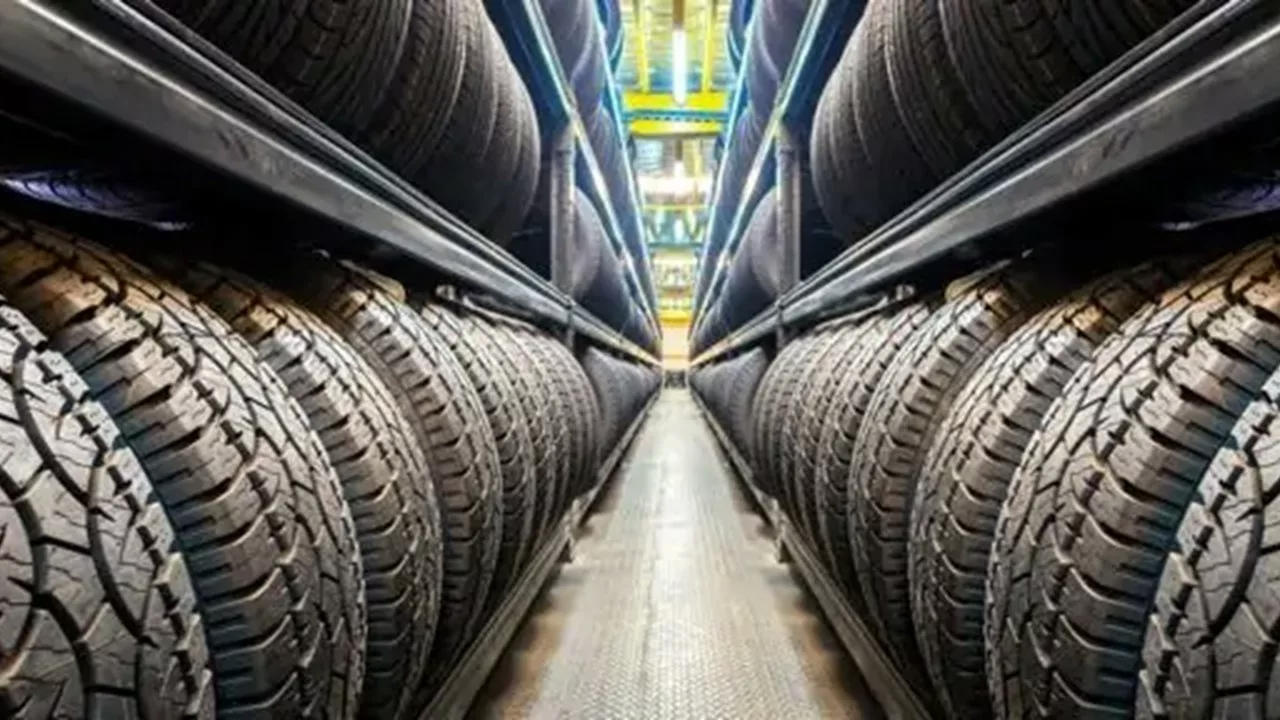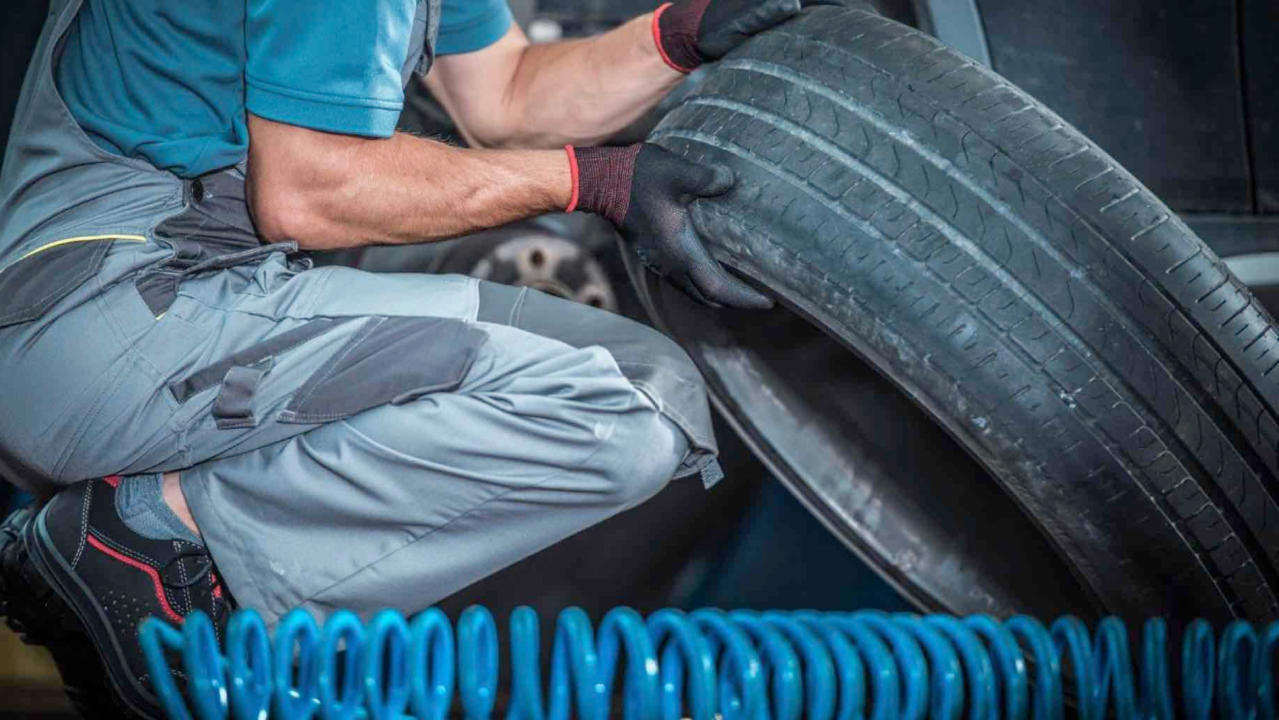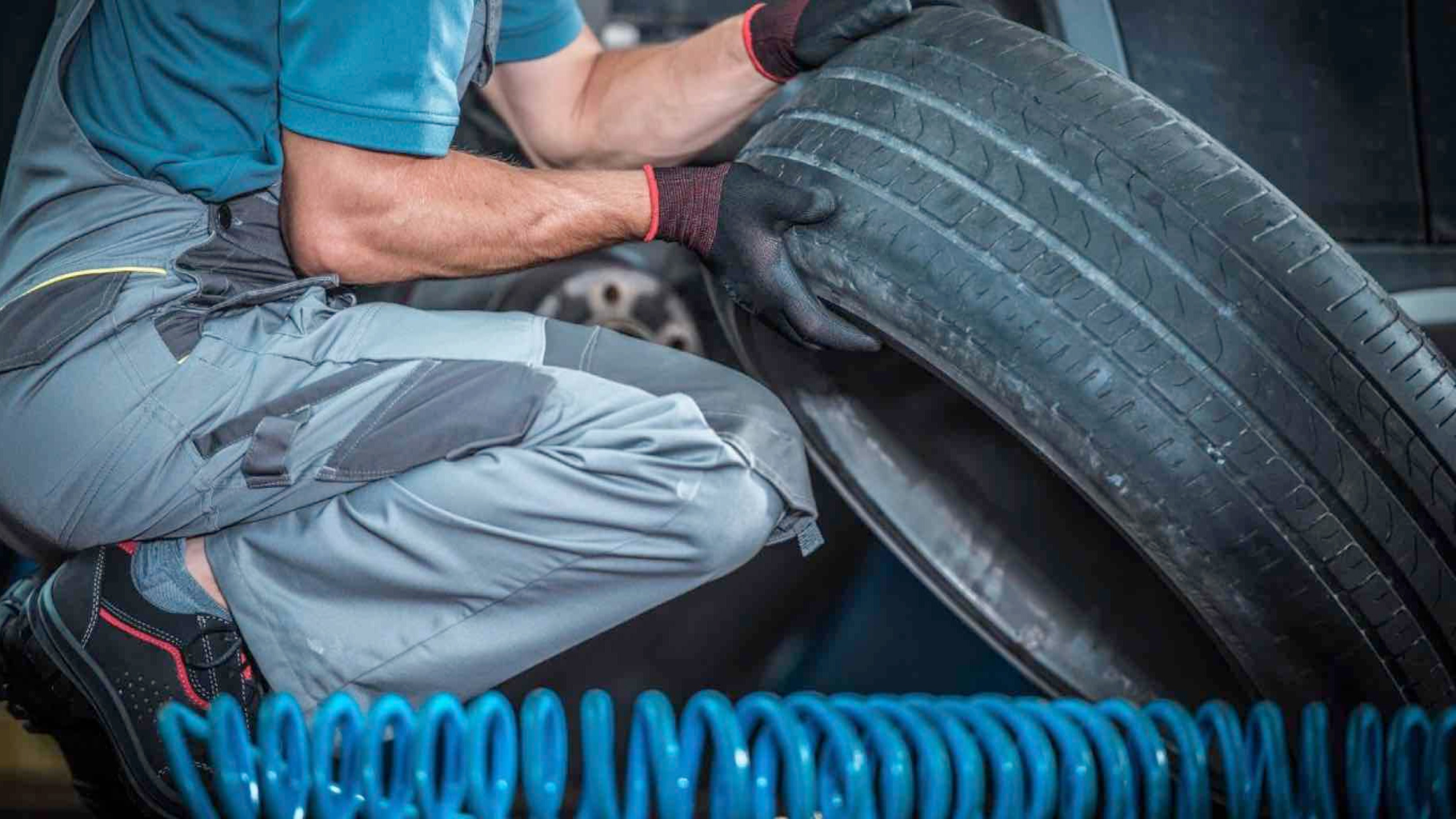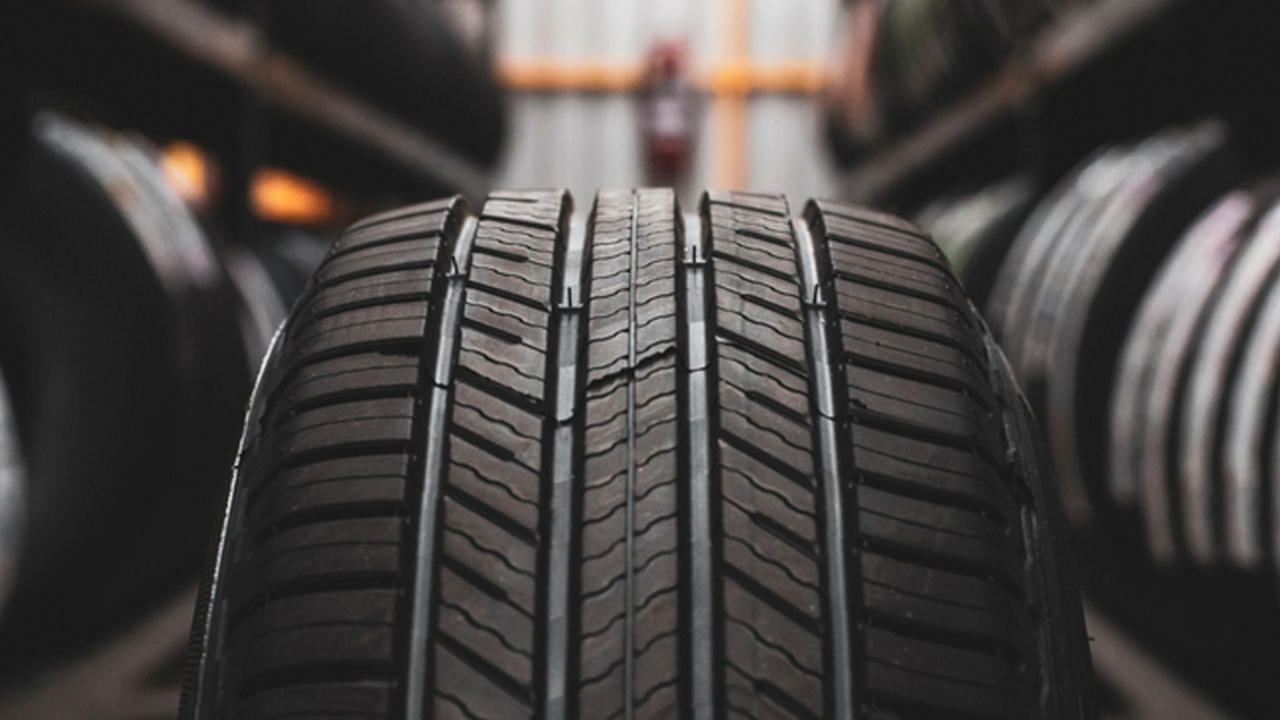In the UAE, tyres do more than just roll your car forward, they protect you against scorching heat, high-speed highways, and endless stretches of sand. Yet, many motorists overlook how crucial the right set of tyres can be for performance, comfort, and safety.

AI Quick Summary
This comprehensive guide helps UAE drivers understand and choose the correct tyres, crucial for safety and performance in the region’s extreme heat and diverse terrains. It deciphers tyre specifications, outlines legal requirements like the 5-year age limit and GCC standards, and emphasizes the importance of heat resistance. The article also covers selecting tyre types for various driving styles, proper maintenance, pressure adjustments, and where to buy genuine tyres.
This summary was generated by AI using this article’s content.
Read Next
From deciphering those confusing sidewall numbers to picking the right compound for local weather, choosing the correct tyre in the Emirates can be tricky. This comprehensive guide answers every question a UAE driver might have before making that next purchase.
What Do the Numbers and Letters on a Tyre Mean?
Every tyre carries a code, such as 225/55 R17 97V, which holds all the essential details:
- 225 – Tyre width in millimetres.
- 55 – Aspect ratio (height as a percentage of width).
- R – Radial construction.
- 17 – Rim diameter in inches.
- 97 – Load index (how much weight each tyre can handle).
- V – Speed rating (maximum safe speed).
Always match these to your car manufacturer’s recommended specs, usually printed inside the driver’s door frame or owner’s manual. Using incorrect sizes or lower ratings can affect handling, braking, and even void your insurance.
What Are the Legal Tyre Rules in the UAE?
In the Emirates, tyres older than five years are not permitted on public roads. You can check this by reading the DOT code on the tyre sidewall — for instance, “2424” means it was made in week 24 of 2024.
All tyres sold locally must meet GCC (Gulf Cooperation Council) standards and carry GSO certification. Always ask your dealer to confirm this before fitting. Using expired or non-GCC tyres can lead to fines and vehicle inspection failures.
Why Is Heat Resistance So Important in the UAE?
Summer heat in the UAE can exceed 50°C, and road temperatures can reach even higher. Tyres that are not designed for such extremes can crack, harden, or burst.
When buying, always look for:
- Temperature Rating “A” (best heat resistance).
- GCC or Hot-Climate specification.
- Durable sidewalls and high-quality rubber compounds.
Avoid old or discounted stock that has been stored outdoors — even unused tyres degrade quickly under sun exposure.
Which Tyre Type Best Fits My Driving Style?

Your driving habits should decide your tyre type. Each style offers unique benefits:
Touring / All-Season Tyres
Smooth, quiet, and perfect for daily city use and long highway drives.
Performance / Summer Tyres
Built for a strong grip and control at high speeds. Great for powerful sedans and coupes.
All-Terrain (A/T) Tyres
Balanced between road comfort and off-road durability. Ideal for SUV owners who drive on both asphalt and sand—check this list of top off-road SUVs.
Mud-Terrain (M/T) Tyres
Deep tread blocks and strong traction for heavy off-roading or desert adventures — but noisier on city roads.
Run-Flat Tyres
Allow you to drive short distances after a puncture. Perfect for added safety, but offer a firmer ride.
EV-Specific Tyres
Made for electric vehicles. They feature stronger construction, low rolling resistance, and reduced noise levels.
How Do I Choose the Right Load Index and Speed Rating?
Your tyre’s load index determines how much weight it can carry, while the speed rating shows the safe top speed. Never buy tyres with a lower index or speed rating than what’s listed in your vehicle manual.
Heavy SUVs, pickups, and electric vehicles often require Extra Load (XL) tyres to support extra weight without losing performance or safety.
What Do UTQG Ratings Tell Me About a Tyre?
The Uniform Tyre Quality Grading (UTQG) system helps compare tyre performance. It includes:
- Treadwear: Indicates expected life span. A higher number means longer life.
- Traction: Grades (AA, A, B, C) measure braking performance on wet roads — “A” or “AA” is ideal.
- Temperature: Shows heat tolerance. Always choose “A” for UAE roads.
These ratings are usually printed on the tyre’s sidewall and can guide you when comparing brands.
How Can I Tell if a Tyre Is Fresh or Stored Too Long?
Check the manufacturing date on the DOT code. Choose tyres made within the past year for the best results. Avoid tyres that have sat in warehouses or outdoor displays, they may look new, but could have hardened rubber and reduced grip.
What Tyre Pressure Should I Use for City and Desert Driving?
Correct tyre pressure is vital for safety, comfort, and fuel economy.
- City & Highway: Follow the manufacturer’s label (usually 30–35 psi).
- Desert or Off-Road: Lower the pressure to 14–18 psi for better traction on soft sand. Here are more desert driving tips and tricks.
- Remember to reinflate immediately before returning to the tarmac.
Check pressure every month and before long drives. Heat changes PSI levels quickly in the UAE.
How Should I Maintain and Care for My Tyres?
Proper care extends tyre life and keeps your car safe.
- Rotate tyres every 10,000–15,000 km.
- Balance and align wheels after new tyres or if vibration appears.
- Inspect for bulges, cracks, or uneven wear monthly.
- Replace tyres once the tread depth falls below 1.6mm.
- Store spares in a cool, shaded place away from sunlight.
These small habits prevent blowouts and uneven wear — common issues in hot regions.
Where Should I Buy Tyres in the UAE?
Always purchase from authorised tyre centres or official distributors. Reliable outlets offer:
- Genuine GCC-spec stock with valid DOT codes.
- Free fitting, balancing, and valve replacement.
- Alignment checks and rotation packages.
- Manufacturer warranty and after-sales support.
Avoid grey-market or online sellers who cannot verify authenticity — fake or expired tyres can be dangerous.
Can I Upgrade My Tyres for Style or Performance?

Yes, but stay within safe limits. If you’re planning to upsize or change rim size, follow these rules:
- Keep overall diameter within ±3% of original size.
- Ensure there’s no rubbing on suspension or wheel arches.
- Do not downgrade speed or load ratings.
- Understand that larger rims often mean a firmer ride.
Professional fitment centres can help calculate the correct upgrade size.
When Should I Replace My Tyres Completely?
Replace your tyres if you notice any of these warning signs:
- Cracks, bulges, or deep cuts.
- Irregular tread wear or vibrations.
- Sidewall damage or exposed cords.
- Tyres older than five years, even with good tread.
Tyres are your car’s only contact with the road, never compromise on safety.
Which Tyre Brands Work Best in UAE Conditions?
Choose reputable brands with GCC-approved models. Some top picks include: Michelin, Bridgestone, Continental, Pirelli, Yokohama, Dunlop, Hankook, Toyo, and Kumho, among others. Each brand offers specific lines designed for high temperatures and regional road conditions.
What Are the Most Important Things to Remember Before Buying?
- Match the correct size, load index, and speed rating.
- Choose tyres with temperature rating A or GCC spec.
- Always check the DOT code for age.
- Maintain proper inflation and rotate regularly.
- Buy only from licensed dealers.
A little research before purchase can save you thousands in repairs and replacements later.
Your tyres are the foundation of every drive, they connect your car to the UAE’s demanding roads and unforgiving heat. Choosing the right set isn’t about brand names or looks; it’s about understanding your needs, the conditions you drive in, and the regulations that keep you safe.
A good tyre choice means smoother rides, better grip, and lasting peace of mind — whether you’re cruising Sheikh Zayed Road or carving tracks across Al Qudra’s dunes.
Find the best used cars for sale in the UAE.
Stay tuned to UAE’s most popular auto blog for more information about the latest happenings in all of the Emirates.
FAQs
How do I choose the right tyre for my car in the UAE?
Check your car’s manual for size, load, and speed ratings. Choose a GCC-spec tyre with an “A” temperature rating and buy from authorised dealers for heat resistance and safety.
What is the legal tyre age limit in the UAE?
Tyres older than five years are illegal on UAE roads, even if unused. Always check the DOT code on the sidewall to confirm the manufacturing date before buying.
Which tyre brands are best for UAE conditions?
Top choices include Michelin, Bridgestone, Continental, Pirelli, Yokohama, and Dunlop. These brands offer GCC-approved models built for hot climates and long highway drives.
What tyre pressure should I maintain in the UAE weather?
For city driving, keep 30–35 psi as per your car’s door sticker. For desert driving, reduce to 14–18 psi for traction, then reinflate before returning to tarmac.
When should I replace my car tyres in the UAE?
Replace tyres if they show cracks, bulges, or uneven wear—or reach five years of age. Proper maintenance ensures safety and avoids fines during RTA inspections.
In the UAE, tyres do more than just roll your car forward, they protect you against scorching heat, high-speed highways, and endless stretches of sand. Yet, many motorists overlook how crucial the right set of tyres can be for performance,





